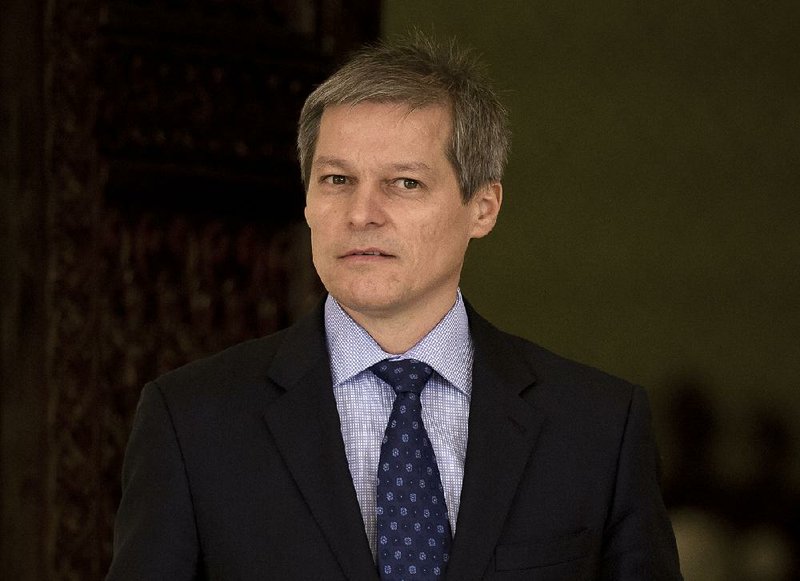BUCHAREST, Romania -- Prime Minister-designate Dacian Ciolos proposed Romania's first technocratic government, recruiting candidates from Brussels and Bucharest to steer the economy and contain citizens' anger over corruption before elections next year.
Ciolos, 46, a former European commissioner for agriculture and adviser to European Commission President Jean-Claude Juncker, nominated Anca Dragu, a commission economist, as finance minister, and Costin Grigore Borc, head of CRH PLC's Romanian unit, as economy minister and deputy premier.
Cristina Guseth, head of Freedom House Romania, was proposed as justice minister, and Victor Vlad Grigorescu as the candidate for energy minister. Parliament may vote to ratify the new Cabinet on Tuesday.
"I targeted experienced, honest people for the governing team, professionals who are open to dialogue," Ciolos said in a speech Sunday in Bucharest before presenting his proposed Cabinet. "I'm not nervous about the Parliament vote because I have a good team."
The new prime minister is assembling a nonpartisan government after anger over corruption -- triggered by a deadly nightclub fire last month -- toppled the administration of Victor Ponta, who was already facing a trial over graft allegations. The unrest in the European Union's second-poorest state has affected central bank policy and delayed discussion of next year's budget.
Both the Social Democrats and the Liberals, who have the most votes in Parliament, said they will vote for the new government. Future support from the former ruling party of Social Democrats will be on a issue-by-issue basis, party leader Liviu Dragnea told reporters in Bucharest on Sunday, after meeting with Ciolos.
Romania's currency, the leu, has recovered most of its losses after Ponta's departure sent it down 0.6 percent in a week against the euro. It's strengthened 0.9 percent this year, according to data compiled by Bloomberg.
Fiscal policy will be high on the new government's agenda. Tax cuts pushed through by Ponta, and criticized by the International Monetary Fund, helped third-quarter economic growth accelerate to 3.6 percent from a year earlier.
Ciolos told reporters Sunday that he plans to examine the draft 2016 state budget if he gets Parliament's approval, but doesn't plan to reverse measures already passed by lawmakers if they can be sustained.
Information for this article was contributed by Irina Vilcu of Bloomberg News.
A Section on 11/16/2015
